Description
ABSTRACT
The Right to Work as a Social Right of Women in Nigeria
Oluwatobiloba Ajayi*
This paper is a library-based examination of right to work as a social right of women in Nigeria. It discusses female labour force participation in the regulated and unregulated employment sectors of Nigeria as well as government employment. The paper highlights factors that determine the level of female participation in labour workforce and the regulation of female workforce in Nigeria. The paper found that in unregulated employment there is a higher level of discrimination and other forms of highhandedness against female employees. It argues that merit is often sacrificed for gender bias and the natural role of females as reproductive beings is turned into an albatross against women rather than a natural phenomenon. The paper concludes with suggestions that since women form an important part of the Nigerian work force and being contributors to the success of the country’s economic growth, their social rights should not be abused through public enlightenments by labour stakeholders. Also, the government should rigorously enforce the existing though inadequate regulatory framework and ensure that employers are made to comply.
Keywords: Women, Work, Discrimination, Gender, Right, Labour Force, Employment.
INTRODUCTION
There is a long history of female participation in productive labour in Nigeria.1 In some traditional communities, women like their male counterparts, hold farmlands and assist in all farming activities as well as help to sell farm produce. Asides working on the farms, Nigerian women, actively participate in non-agricultural activities such as craft and dyeing, weaving and spinning, food processing, retail trade and other home-based informal activities to make ends meet.2> In contemporary times, there has been a shift from the informal labour sector to the formal labour sector by women as working in a formal sector is perceived as a better means of economic sustenance.
Over the years, there has been a great deal of concern about the discriminatory practices in the formal labour market based on gender considerations. There are several practices, beliefs and stereotypes held against the female gender regarding their suitability for certain jobs, eventual employment and advancement on the job. This is because they unjustly bear with the contending challenges of creating a balance between their official duties and family responsibilities and with several overt and covert acts of sexual arrangement and discrimination.3 It is extremely challenging in some workforce for women to go beyond a particular career level.
* LL.B (Hons), LL.M. The author is currently a PhD candidate at the University of Ibadan, Nigeria.
- IO Lawanson, ‘Female Labour Force Participation in Nigeria: Determinants and Trends’ (0xford Business and Economics Conference Program, Oxford, UK, June 2008). accessed 27 November 2018.
- ibid.
- F Enemuo, ‘Gender and women Empowerment’ in R Anifowose, and F Enemuo, (eds), Elements of Politics (Malt house Press Limited, Lagos. 1999). See further, Solomon O Akinboye, ‘Challenges and Prognosis of Gender Equality in Nigerian Politics’ in Solomon O Akinboye (ed), Paradox of Gender Equality in Nigerian Politics (Concept Publications Limited, Lagos 2004) 234.

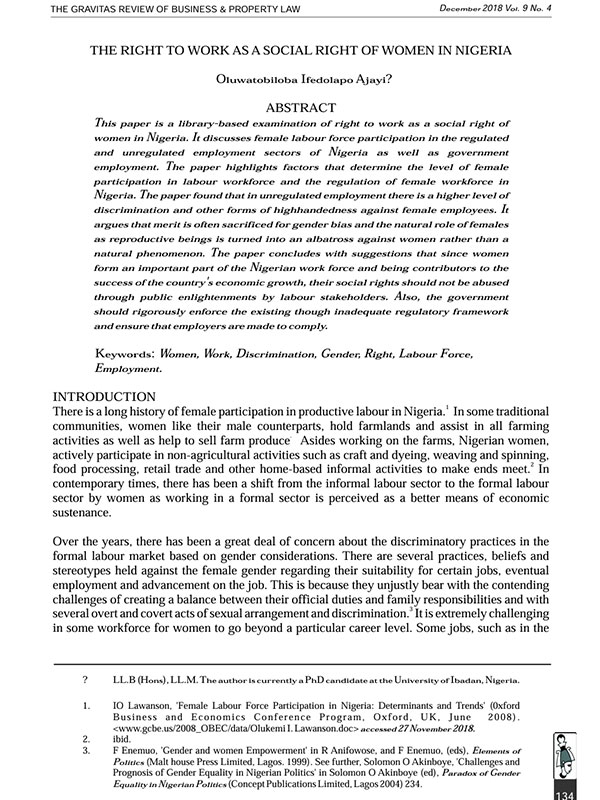
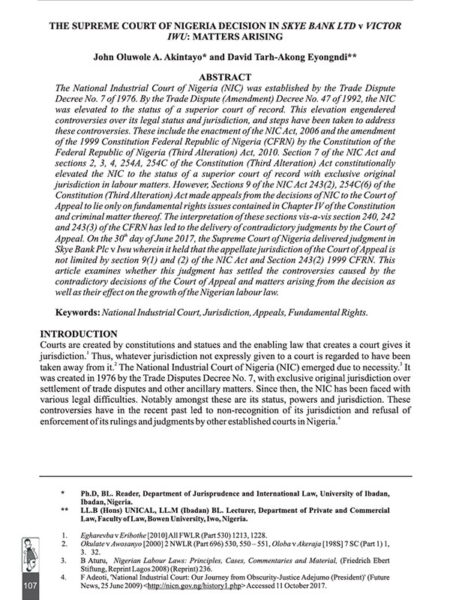
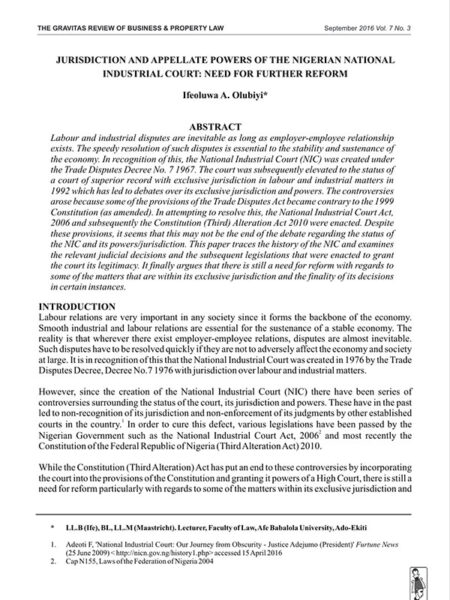
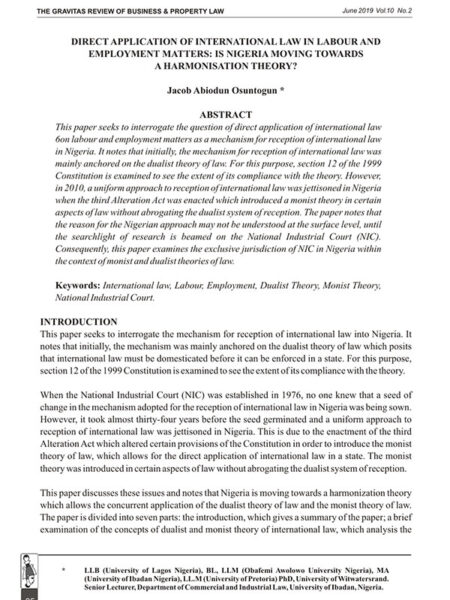
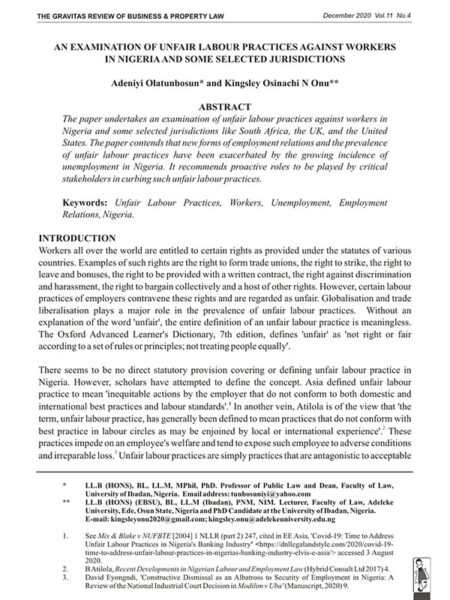


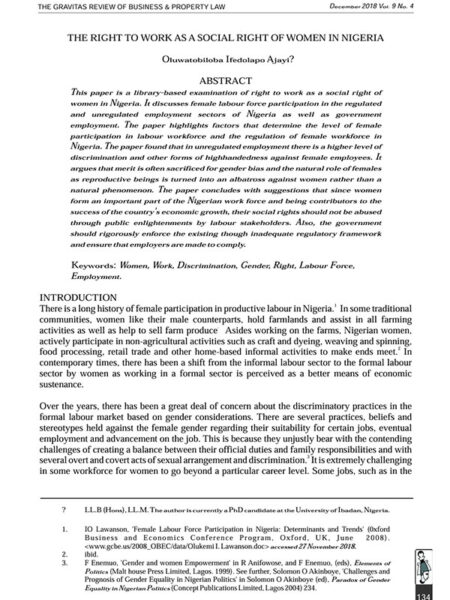
Reviews
There are no reviews yet.